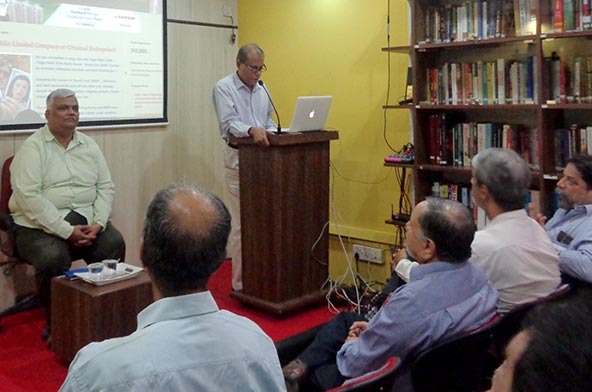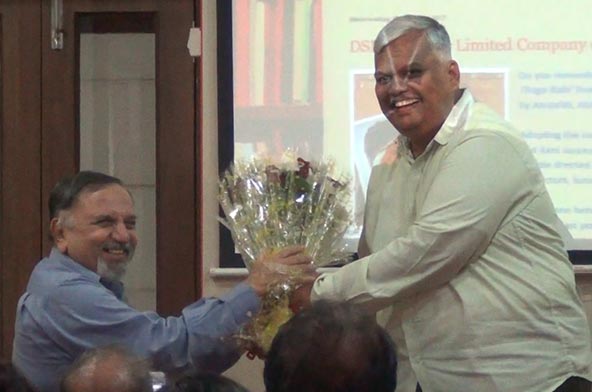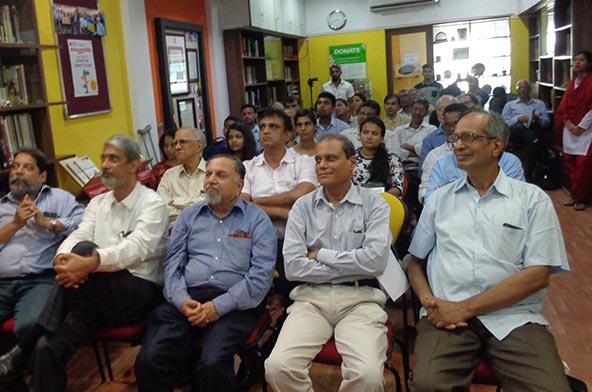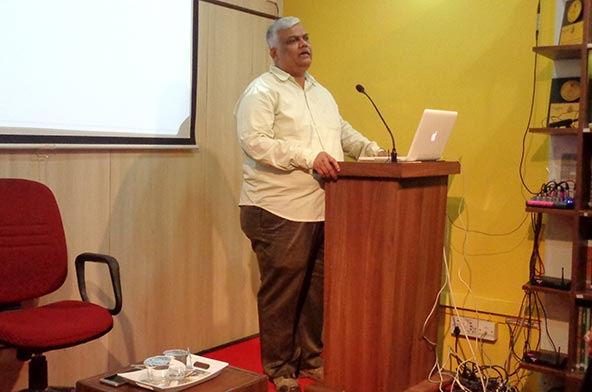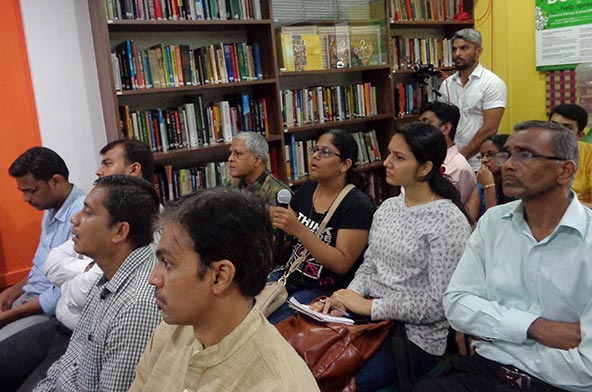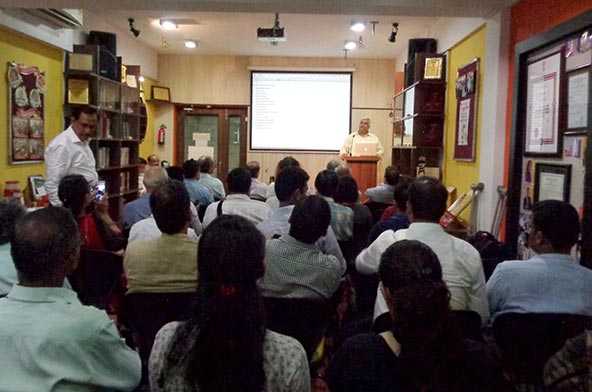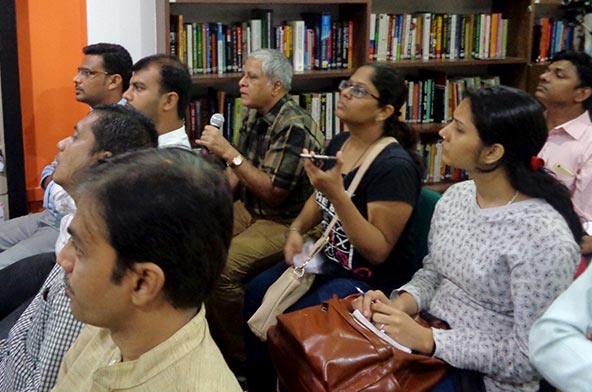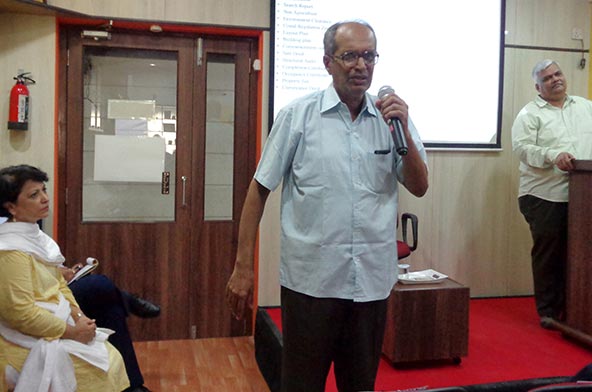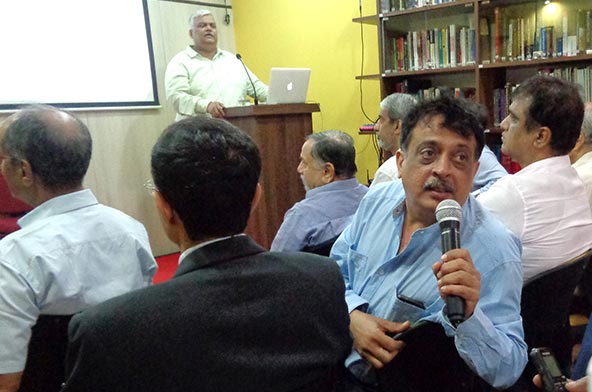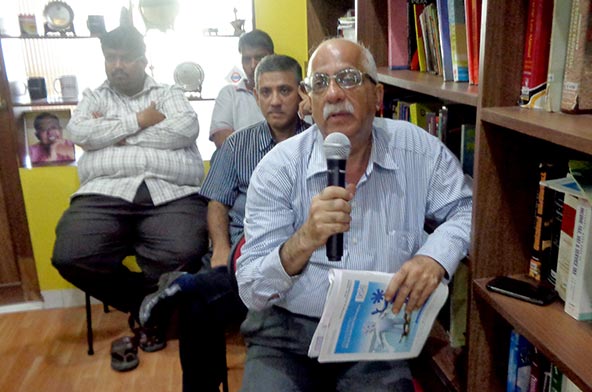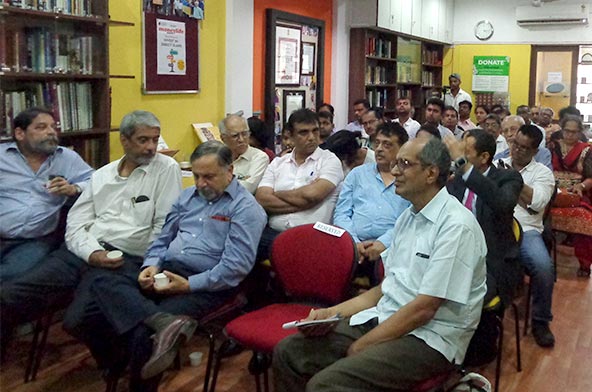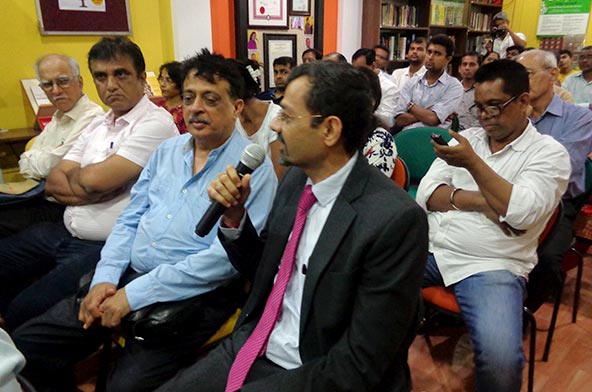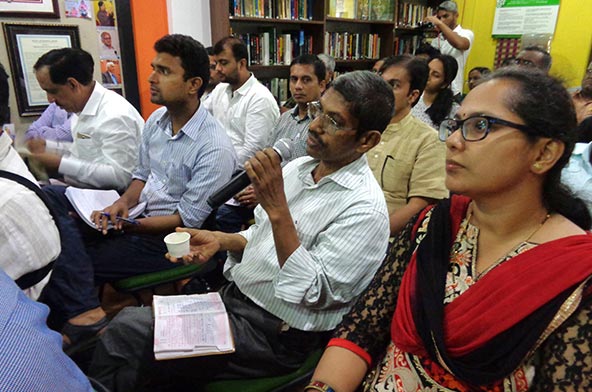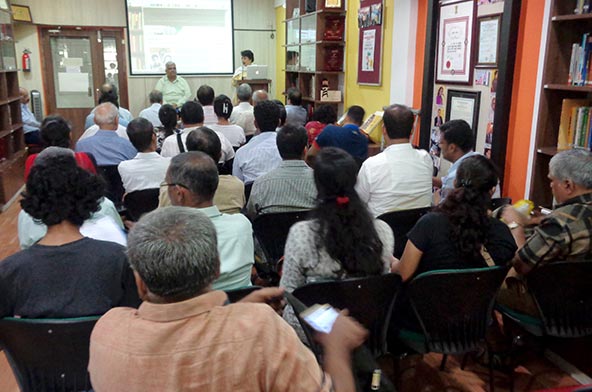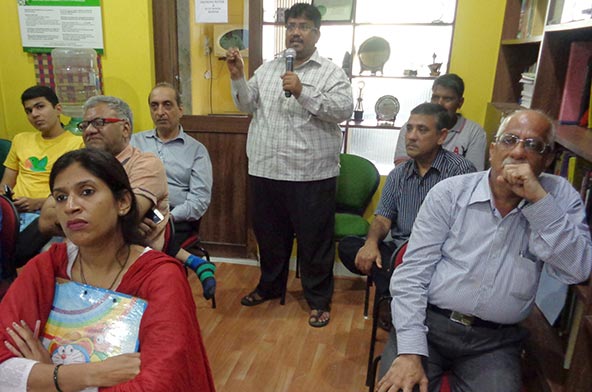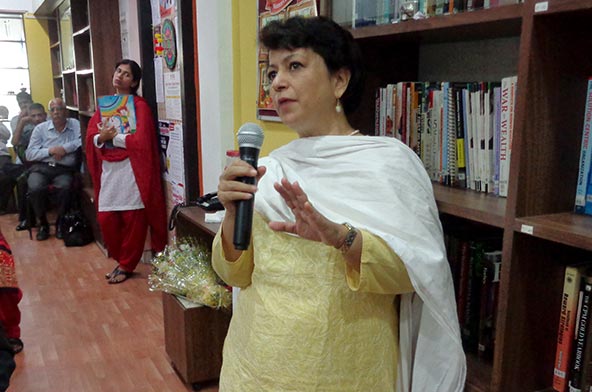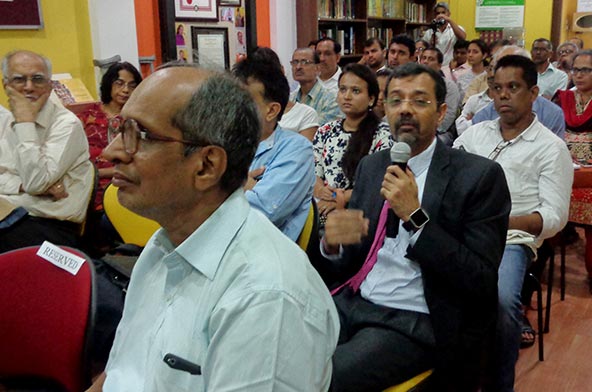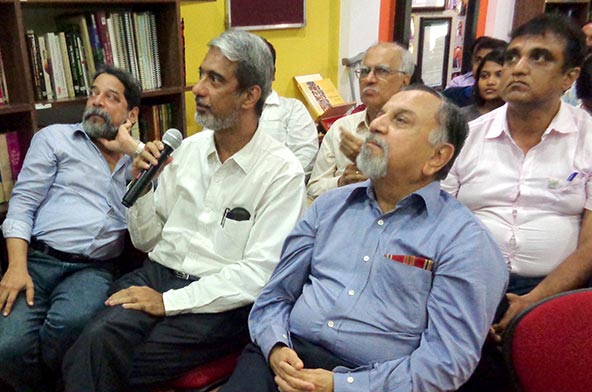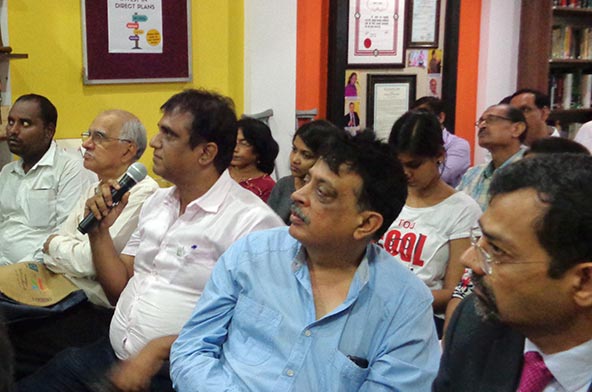
The Real Estate (Regulation and Development) Act, 2016 (RERA) in Maharashtra (MahaRERA) was brought to ensure transparency and efficiency in realty deals, especially in the sale of plots, apartments, buildings or real estate project and also protect interest of consumers. However the way MahaRERA is being used by the vested interest, I see no hope for common buyers who are not alert to its issues, says Vijay Kumbhar.
The Pune-based right to information (RTI) activist was speaking at Moneylife Foundation on ‘How to use RTI for Property Matters and Land Plotting Schemes”. Since RERA does not provide all the answers, Mr Kumbhar guided people on how they could verify land and property details themselves on government websites that already upload key information that is easily accessible to all.
Mr Kumbhar strongly urged people investing in property to make the effort to use tools and information that are already available in the public domain. He pointed out how his entire investigation into the DS Kulkarni Developers fraud and their dubious property transactions were unearthed by using public tools, without even having to file Right to Information (RTI) applications.
The then took people through a detailed list of issues that could go wrong with property purchase and offered guidance on how to obtain accurate information or avoid pitfalls. These includes RERA registration number, survey number of the property, demarcation, search report, non-agriculture (NA) certificate, environment clearance certificate, costal regulation zone (CRZ), layout plan, building plan, commencement certificate (CC), sale deed, structural audit, completion certificate, occupancy certificate (OC), property tax and conveyance deed.
According to Mr Kumbhar, since most of the information related with property matters is available on government websites, there may not be a need to file RTI. He says, “One can visit the Mahabhulekh portal that is the website of Maharashtra Land Records and provides 7/12 utara (extract) online. This helps you to check the 7/12 extract of all land properties across Maharashtra. Similarly, one can check details of registration on the website of Department of Registration & Stamps. Here you need to register once to check data related with registration of a property. However, for original information and certified copy, you need to visit the concerned office of the Sub-Registrar in your area.”
He also shared an incident where one young IT engineer working abroad was sold plot of land by showing pictures on a website. “If the promoter claims that he owns 100s of acres of agriculture land, then beware. There is a ceiling in Maharashtra for owning agriculture land for individuals. Also as per the law, you cannot buy agricultural land, if you are not a farmer. Promoters often use the word, ‘proposed non-agricultural (NA) land’.
This is misleading. There is no concept of proposed NA. Either the land is agricultural or non-agricultural. With this proposed NA scheme, there is no guarantee that the land will become NA. In addition, it may take 10 or 20 or even more years before the agricultural land can be converted to NA. Do ask the promoter exact survey number of the property. If he is not sharing, then do not invest any money. In short, do not fall for such marketing gimmicks and do a thorough search about the promoters, the property or land, all official documents related with the project, before handing over your hard earned money to the seller,” Mr Kumbhar advised.
Mr Kumbhar also explained difference between sale deed and agreement to sale. He says, “As the name says, a sale deed is agreement for the actual sale that has taken place. While in the agreement to sale, actual sale may not have taken place and both parties would just have agreed for the sale. When a dispute about ownership arises, it is the sale deed that is termed as legal and valid document and not the agreement of sale.”
He then guided the participants on how to check environment clearance certificate for the realty project, how to get structural audit done with help from three-four other buyers in the same project to check quality of materials used there, how to understand difference between completion certificate and occupancy certificate.
Coming back to his criticism of issues with the MahaRERA data he says, “To protect interest of consumers, the MahaRERA mandates promoter-builders or developers and the Authority (RERA) itself to publish certain information like credentials of promoter-builders and developers and their projects on the website. However, through the latest amendment in rules, MahaRERA has given discretionary powers to builder or developers with regard to the information that is uploaded on the RERA portal. This is wrong and not in the interest of buyers.”
Mr Kumbhar’s talk was attended by several well-known activists and realty experts. Among them was Pankaj Kapoor, Founder and Managing Director of Liases Foras Real Estate Rating & Research Pvt Ltd. While admitting that there is a still long way to go for RERA to be effective, Mr Kapoor, in response to a query, said that MahaRERA was a big step forward in terms of information available and buyers are at least becoming aware of several things in property market. He says, “With RERA, promoters and developers are mandated to upload all details of the project, which were not shared with buyers earlier. The information uploaded on RERA website by promoters and developers may not be 100% accurate or true. But at least this is good beginning and I feel over the next few years, as buyers demand more information, the promoters and developers will come forward and share all details in public domain.”
Mr Kapoor also believes that things will begin to settle down as these mistakes are pointed out by consumers and MahaRERA initiates corrective action.
Citing the example of parking in a building, Mr Kumbhar pointed out differences between MahaRERA and relevant judgement of the Supreme Court. “The apex court says parking cannot be sold in a housing society by the builder. However, the RERA says parking charges should be shown separately in the cost. This is causing confusion in the buyer’s mind. The ruling by the SC is considered as law of the land and thus RERA needs to provide clarification in this matter,” he added.
The discussion ended with an update on Mr Kumbhar’s investigation in the DS Kulkarni Developers issue, which is making waves in Pune. He said the size of the scam is likely to be around Rs6,000 crore and urged people to file a first information report (FIR) under the Maharashtra Protection of Investors and Depositors Act (MPID). He pointed out that MPID Act is the only statute that has the power to impound assets of relatives of the promoters who are the beneficiaries of money siphoned from the companies.


